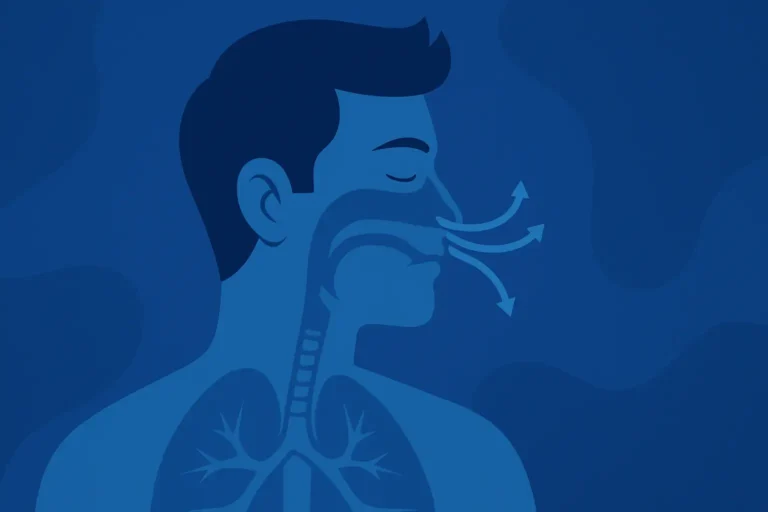What is a Dry Mouth a Sign Of?
Have you ever woken up feeling like your mouth is full of cotton? You try to swallow, but it feels sticky and uncomfortable. Sometimes, you might even find it hard to talk, eat, or even taste food properly. If this sounds familiar, you’re not alone. Dry mouth, also called “xerostomia,” happens to a lot of people. But just because it’s common doesn’t mean it’s something you should ignore.
Dry mouth can be a sign that something else is going on with your body. It could be simple, like being a little dehydrated. Or it could point to bigger health problems. That’s why it’s important for you to understand why your mouth feels dry and what it could mean for you.
Let’s break it down in simple words.
Why Does Dry Mouth Happen?
Your mouth stays wet because of saliva. Saliva is important. It helps you chew, swallow, taste food, and even protects your teeth from decay. If your mouth is dry, it means your body isn’t making enough saliva.
Here are some common reasons:
- Your body is not making enough saliva
- Your saliva is thicker than normal
- The glands that make saliva are not working properly
When you understand why, it becomes easier to fix the problem.
Is Dry Mouth a Sign of Dehydration?
One of the first things I always ask myself when my mouth feels dry is, “Did I drink enough water today?” Dehydration is a very common cause of dry mouth. Your body needs water to make saliva. If you don’t drink enough fluids, your body saves water for more important organs like your heart and brain. Your mouth will be one of the first places that shows signs.
How to know if it’s dehydration? You might also feel:
- Very thirsty
- Dizzy or lightheaded
- Tired
- Have dark yellow urine
If you notice these along with dry mouth, drinking water might solve your problem quickly.
Here’s a small table that shows signs of dehydration:
| Sign | What You Feel |
|---|---|
| Thirst | Very dry mouth, craving water |
| Urine color | Dark yellow or brownish |
| Energy level | Feeling tired or weak |
| Dizziness | Feeling lightheaded |
Can Dry Mouth Be a Sign of Diabetes?
Yes, dry mouth can sometimes be a sign of diabetes. When blood sugar levels are too high, it can pull fluids from your tissues, making you feel dehydrated. Your mouth gets dry because your body is losing water.
Other signs of diabetes to watch for:
- Peeing a lot, even at night
- Feeling very thirsty all the time
- Losing weight without trying
- Blurry vision
- Feeling very tired
If you have dry mouth along with these problems, it’s a good idea to talk to a doctor and check your blood sugar.
Is Dry Mouth Linked to Medicines?
Another big reason you might have dry mouth is because of the medicines you take. Many common medicines can cause it, even ones you don’t think are strong.
Here’s a list of medicines that often cause dry mouth:
| Type of Medicine | Examples |
|---|---|
| Blood pressure medicines | Amlodipine, Lisinopril |
| Depression medicines | Amitriptyline, Sertraline |
| Allergy medicines (antihistamines) | Diphenhydramine, Loratadine |
| Painkillers | Morphine, Oxycodone |
If you notice dry mouth after starting a new medicine, ask your doctor if it could be causing it. Sometimes they can change the dose or give you a different one.
Could Stress or Anxiety Cause Dry Mouth?
Yes, stress and anxiety can dry out your mouth too. When you’re nervous, scared, or anxious, your body reacts by slowing down saliva production. Think about a time when you had to speak in front of a big crowd or were waiting for big news — your mouth probably felt dry, right?
If you feel dry mouth mainly during stressful times, it’s probably linked to anxiety. Learning to relax, taking deep breaths, and managing stress can help a lot.
Is Dry Mouth a Sign of an Autoimmune Disease?
Some diseases make your immune system attack healthy parts of your body. One of these diseases is called Sjögren’s syndrome. In this disease, your immune system attacks the glands that make saliva and tears.
You may notice:
- Very dry mouth
- Dry, itchy eyes
- Trouble swallowing
- Feeling tired all the time
Sjögren’s syndrome mostly affects women, especially around middle age. If you have dry mouth along with dry eyes and fatigue, you should definitely talk to a doctor.
Can Smoking Cause Dry Mouth?
If you smoke, you already know it’s not great for your health. Smoking can make your mouth very dry too. Tobacco reduces saliva flow and damages the glands in your mouth. If you chew tobacco, it’s even worse.
Quitting smoking can make a big difference. Your mouth will start to feel healthier, and you’ll notice more saliva in just a few weeks.
Is It Normal to Have Dry Mouth at Night?
Many people complain about dry mouth mainly at night. There are a few reasons for this:
- Breathing through your mouth while sleeping
- Sleeping with your mouth open
- Using a CPAP machine for sleep apnea
- Not drinking enough water during the day
If you notice that your mouth feels dry only when you wake up, it could just be because you sleep with your mouth open. A humidifier in your room can sometimes help, or you might need to see a doctor if it’s very bad.
When Should You Worry About Dry Mouth?
Sometimes dry mouth is a small problem that you can fix easily. Other times, it could mean something serious. You should talk to a doctor if:
- Your dry mouth lasts more than a few days
- You have trouble swallowing
- You have dry eyes too
- You have mouth sores
- You feel very tired or sick
It’s better to catch a problem early than to wait and let it get worse.
Here’s a simple table to help you:
| Situation | What To Do |
|---|---|
| Dry mouth after new medicine | Ask doctor about medicine |
| Dry mouth with thirst and peeing a lot | Check for diabetes |
| Dry mouth with dry eyes and tiredness | Check for autoimmune disease |
| Only dry mouth at night | Try sleeping changes first |
Tips for Managing Dry Mouth
Here are some easy tips that can help you if you have dry mouth:
- Sip water often throughout the day
- Chew sugar-free gum to make more saliva
- Avoid alcohol and caffeine because they dry out your mouth
- Use a humidifier at night
- Avoid salty or dry foods
- Try over-the-counter saliva substitutes if needed
- Brush your teeth carefully and visit your dentist regularly
Small changes can make a big difference. You don’t have to live with the discomfort of dry mouth.
Conclusion
Dry mouth can be annoying, but it’s your body’s way of telling you something. Sometimes it’s simple, like needing more water. Other times, it could point to bigger problems like diabetes or autoimmune disease. If your dry mouth doesn’t go away or you have other symptoms, don’t ignore it. Talk to your doctor and find out what’s going on. It’s better to get help early.
Take care of your mouth, and it will take care of you. If you have any doubts or your dry mouth is bothering you, don’t wait too long to get it checked out. Your health is worth it.






